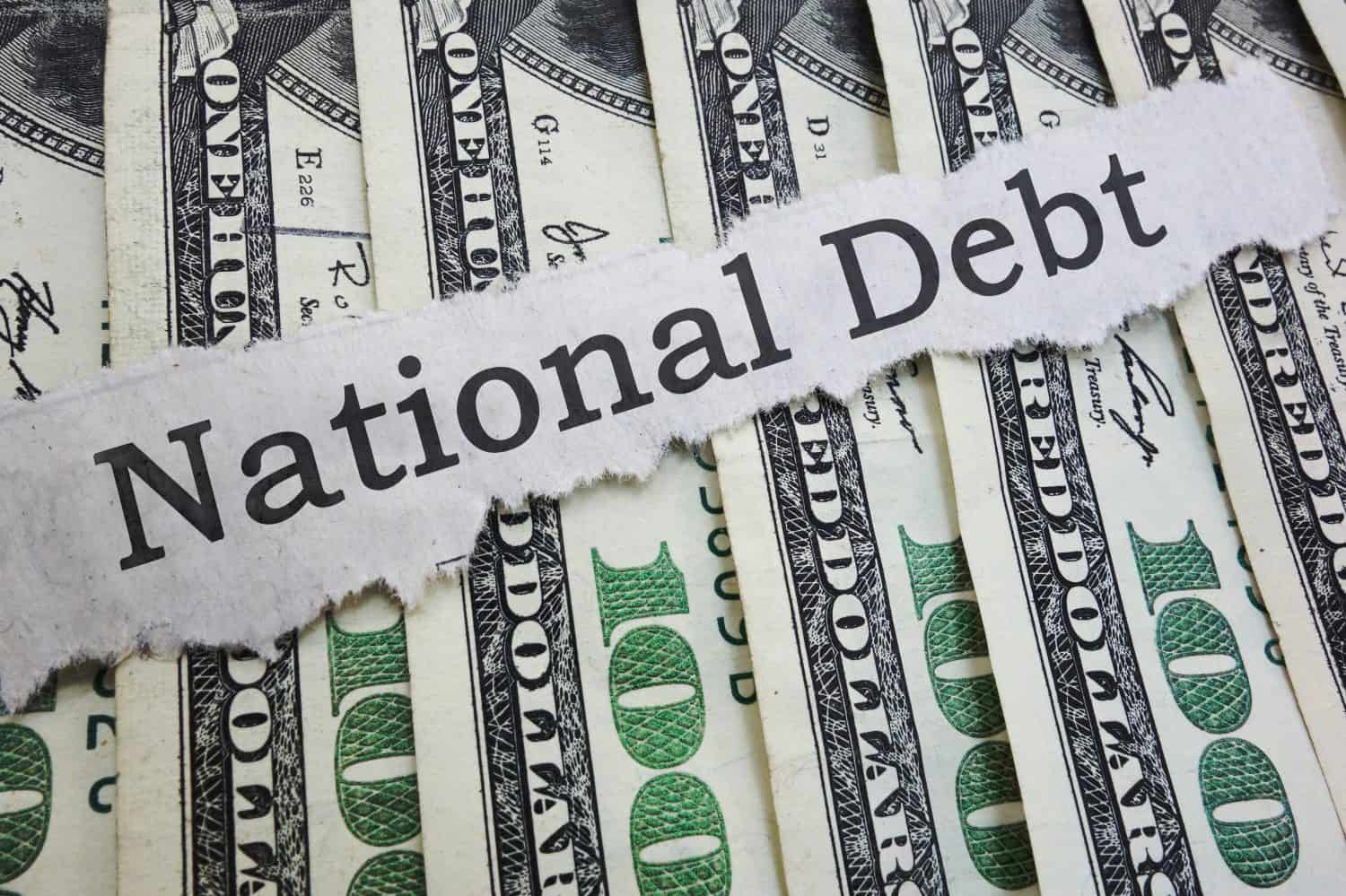
""National debt" is a term thrown around quite frequently during political discussions. This often-staggering figure is the amount of money a country owes its creditors. But what or who constitutes as a creditor to a major nation? These can include institutions both overseas and at home, as well as other foreign countries. Though any sort of debt is generally painted in a negative light, national debt is normal and often goes along with a healthy economy; it can even help stimulate growth."
"When various forms of government spending outpace incoming revenue, the result is known as a budget deficit, resulting in national debt. When the national economy is weak and consumers are spending less as a whole, the national debt will likely increase. The multiple factors leading to accrued debt of a huge nation like the United States are often quite complex. Additionally, they vary across generations and presidencies."
"This means that a lot of money is going towards interest payments instead of important funding that benefits the public, such as research, education, and infrastructure. The higher national debt also means that the government is more limited in what they're able to do in times of crises and must resort to cutting back on social safety net programs to make ends meet."
National debt refers to the total amount a country owes to domestic and foreign creditors, including institutions and other nations. National debt can coexist with a healthy economy and sometimes stimulate growth. Budget deficits occur when government spending exceeds revenue, increasing national debt, particularly during weak economic activity when consumer spending falls. High national debt raises borrowing costs and diverts funds toward interest payments instead of public priorities like research, education, and infrastructure. Elevated debt limits government options during crises and can force cuts to social safety net programs. Budgetary authority rests with Congress and the President, and presidential fiscal decisions influence debt levels.
Read at 24/7 Wall St.
Unable to calculate read time
Collection
[
|
...
]